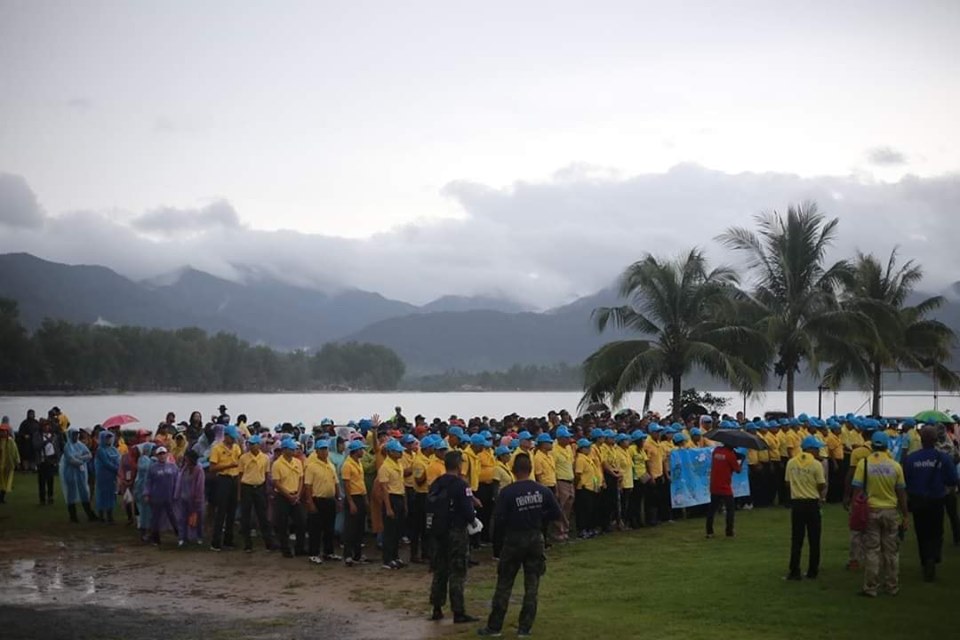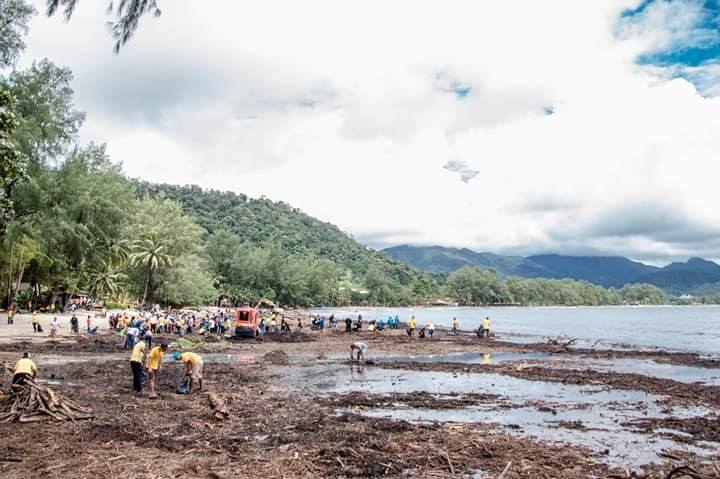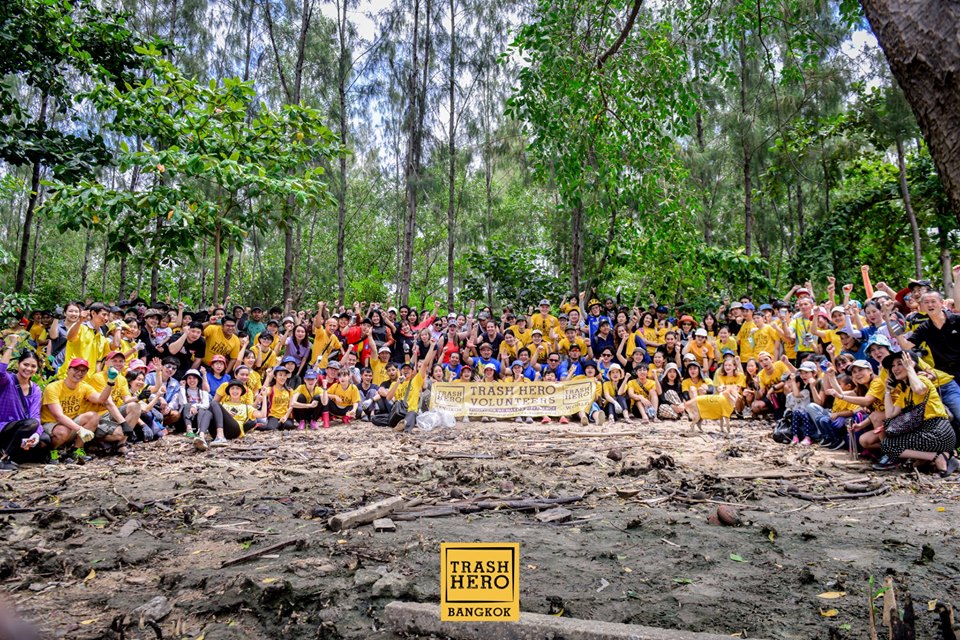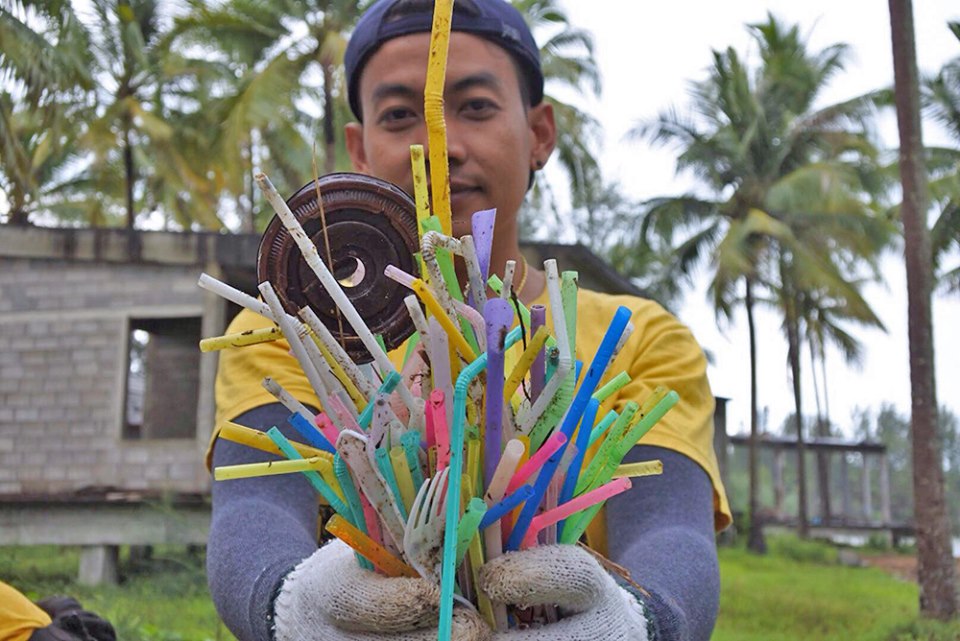This week, Break Free From Plastic (BFFP) released their second global brand audit, Branded Vol. II: Identifying the World’s Top Corporate Plastic Polluters.
On 2019’s World Clean Up Day held September 21, more than 72 thousand volunteers from 51 countries around the world collected 476,423 pieces of plastic from coastlines, riversides, and within their communities – 43% of which were marked with a clear consumer brand.
In 2019, BFFP had over seven times as many volunteers contribute to this brand audit as it did in 2018, recording twice the amount of single-use plastic.
The Top 3 Global Polluters are the same as those from 2018: Coca Cola, Nestlé, and Pepsico.
The other seven companies the brand audit identified as top plastic polluters include: Mondelez International, Unilever, Mars, Procter & Gamble, Colgate-Palmolive, Philips Morris International, and Perfetti van Melle.
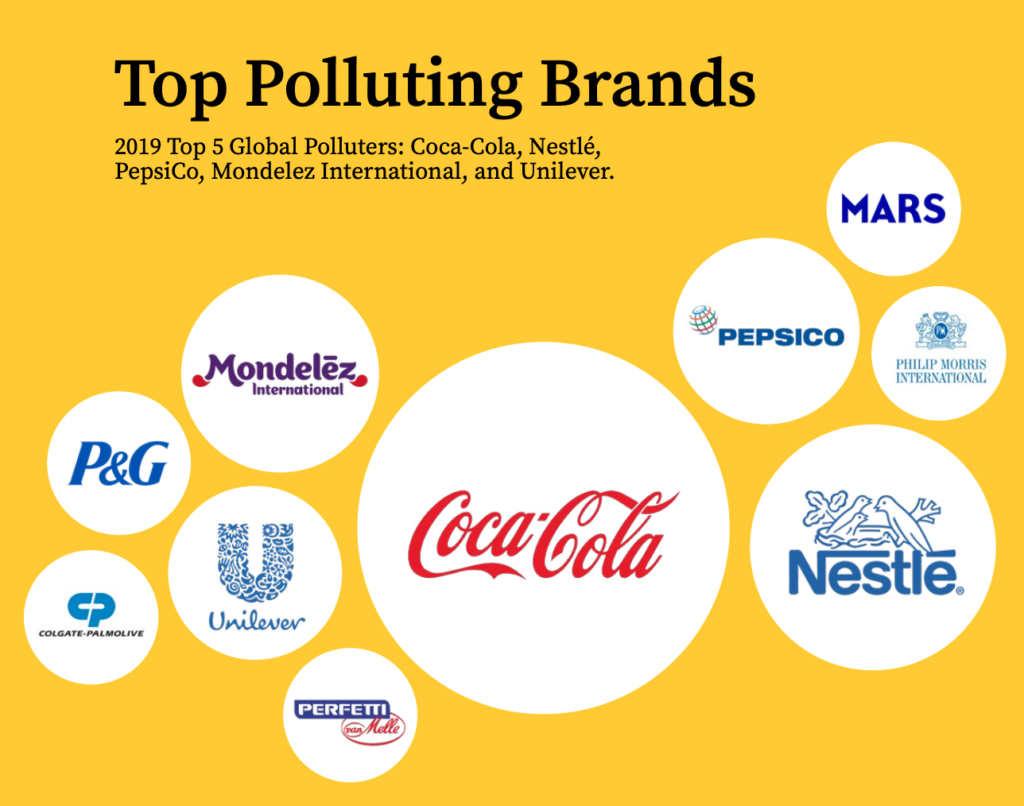
© Break Free From Plastic Branded Vol. II: Identifying the World’s Top Corporate Plastic Polluters.
World Cleanup Day volunteers recorded the branded waste collected as they cleaned their communities, submitting a combined 484 audits to Break Free From Plastic. The Trash Heroes of Indonesia were even awarded a silver medal in recognition of their 7,520 volunteers!
The volunteers in Ambon, Indonesia were hit with a 6.5-magnitude earthquake and evacuated from their homes – and yet still retrieved their brand audits to submit their data to BFFP, a true, inspiring commitment to these heroes fighting to improve their communities and move toward a waste-free future.
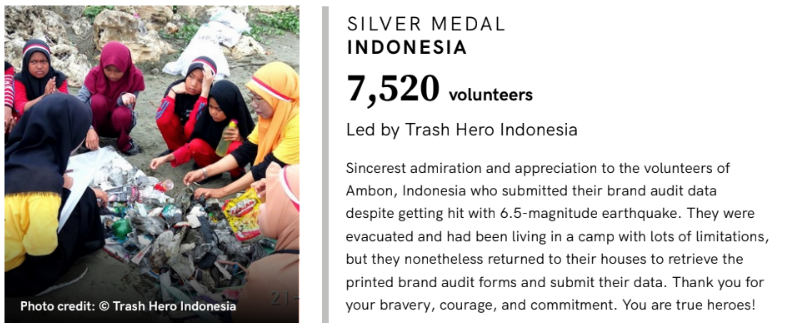
Such brand audits are a powerful tool for holding consumer goods companies accountable for their role in the global plastic waste problem, revealing just how widespread and damaging their throwaway plastic business model has become.
“There is a great need to better understand the sources and priority products that contribute to plastic pollution closer to the source, so we can better intervene on solutions,” the BFFP report says.
For the second year in a row, Coca Cola came is as the #1 global polluter. In just one day, an incredible 11,732 branded Coca Cola plastics were collected and recorded – more than the next three top global polluters combined. In the past, Coca Cola has attempted to address its role in the plastic pollution crisis by promoting plastic packaging using plastic collected from the ocean, or using plastic bottles made from plants, or bioplastics. But these “solutions” merely reinforce the myth that single-use plastic can be sustainable.
According to the report, the #2 polluter, Nestlé, has announced its commitment to making all of its packaging recyclable or reusable by 2025 – but with no clear plan for reducing the total amount of single-use plastics it produces. The company sells over a billion products a day in single-use plastic. In spite of these claims, on the shores of Lake Geneva, home to Nestlé’s global headquarters, Greenpeace Switzerland volunteers collected 1,124 plastic items in just two hours on World Cleanup Day.
Unilever, the #5 plastic polluter, has promised to reduce its role as a plastic polluter by using chemical recycling, according to BFFP’s report. This technology, however, is unproven, extremely energy intensive, and its adoption on a large scale is completely unfeasible.
These pivots and marketed alternatives made by global brands are ignoring the primary issue – we need to reduce our dependence on plastic altogether, and that starts at the source with these primary producers.
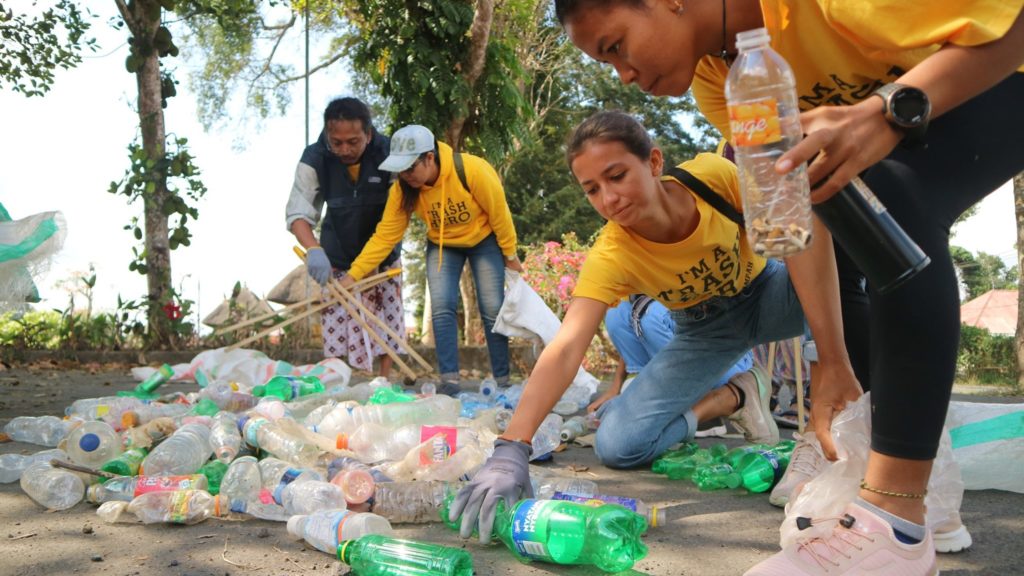
Overall, the most common types of plastics collected throughout the audit included:
- PET plastics – clear or tinted plastic often used in drink bottles, cups, and pouches
- HDEP plastics – white or coloured plastic
- PVC plastics – hard or rubbery plastic used in building materials, toys, and shower curtains
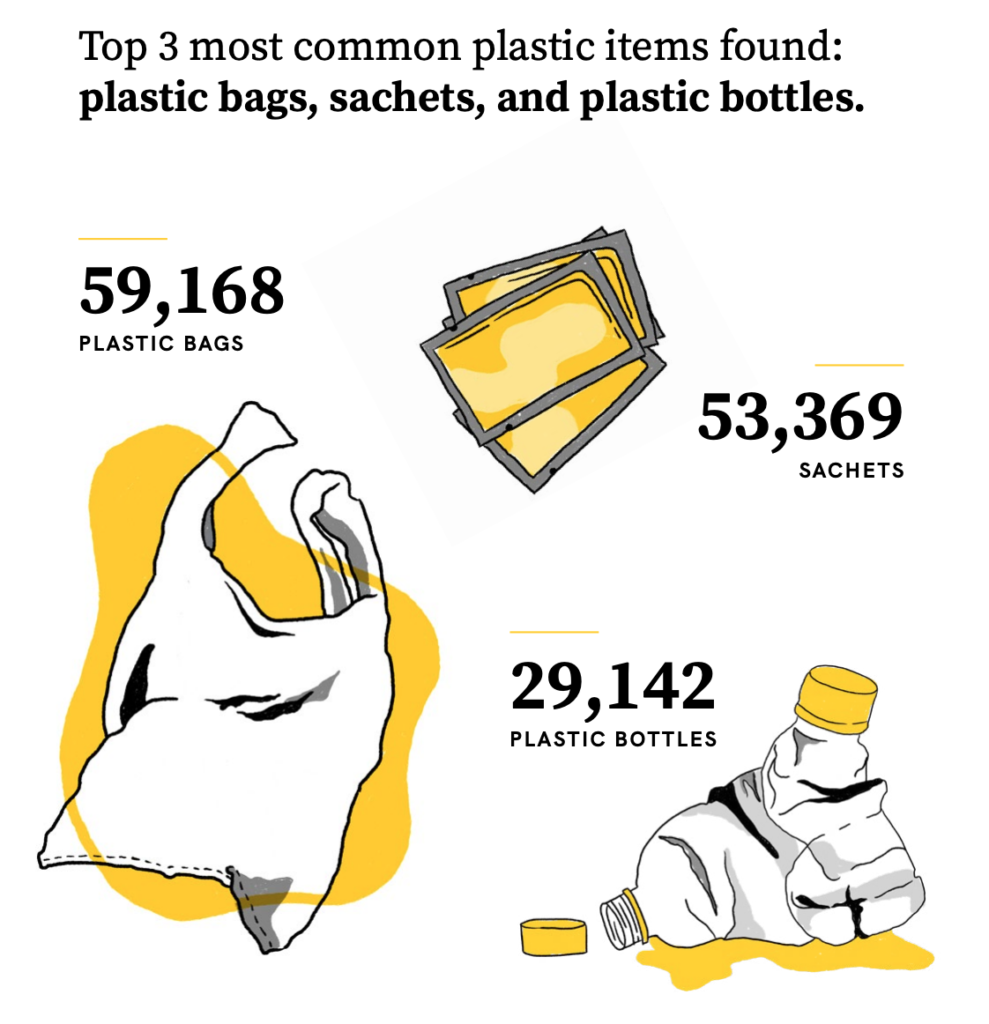
© Break Free From Plastic Branded Vol. II: Identifying the World’s Top Corporate Plastic Polluters.
We can make more sustainable choices as individuals, but the consumer is not fully responsible.
For years, the corporate narrative has been that plastic pollution is a problem caused by individual consumers. False solutions like recycling, incineration, and bioplastics are rampantly promoted, but fail to address the real problem – constant, large scale production.
The report addresses that in many cases, across many communities, it’s simply impossible to avoid plastic in our everyday lives. The responsibility simply cannot fall entirely on individual consumer choices. We have a powerful global plastics industry that plans to quadruple plastic production by 2050, meaning the environmental, social justice, and health threats associated with such high levels of plastic waste will increase dramatically.
“Plastic is not a litter problem, it is a pollution problem, and it starts as soon as the plastic is made,” the BFFP report states. “Faced with no choice but plastic packaging, people are forced to be complicit in the plastic pollution crisis.”
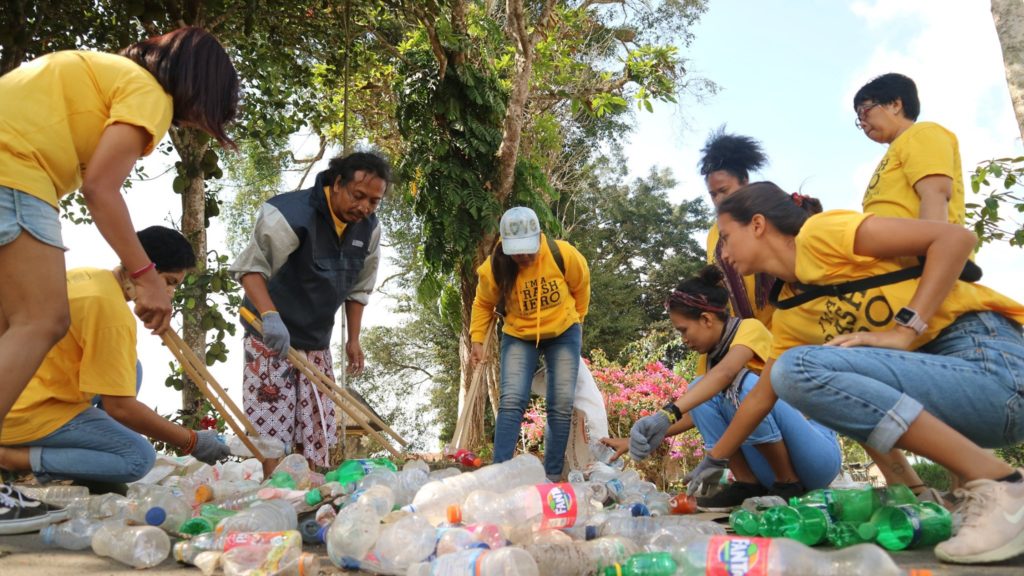
In the report, Break Free from Plastic also discussed zero-waste and policy solutions designed to address this systemic plastic production problem.
Highlights include examples of cities and organisations using surveys, audits, and citizen science methods to understand their local waste problem and demand that suppliers of plastic products take accountability for their role in unsustainable waste – as well as governments that set the policies to regulate these companies
Inspiring examples of community-led change from the audit include:
- Tacloban City, a highly urbanised area in central Philippines, is well on its way to becoming a Zero Waste model city. In partnership with the Filipino non-profit organisation the Mother Earth Foundation, the city launched intensive house-to-house information, education, and communication campaigns about waste management and separation.
- The 5 Gyres Institute in North America conducted scientific expeditions to study the global estimate of microplastics in the world’s oceans. The findings contributed to the eventual banning of plastic microbeads in America through the Microbeads Free Waters Act.
- In Guatemala, a university student worked with local organisations to pressure the local government to rethink its policies toward single use plastic. Later that year, the Mayor placed a ban on the sale and use of straws, plastic bags, and polystyrene products. The municipality then ran campaigns to promote the use of traditional packaging like maxan leaves, sugarcane baskets, and reusable dishware and utensils, providing items throughout the community and its businesses.
Examples like these, and many others included in the full report, highlight how no matter where in the world you live, community power – and creating a culture of accountability – can lead to powerful, lasting change toward a plastic waste-free future.
Check out the full report and brand audit from Break Free From Plastic to learn more.
read more
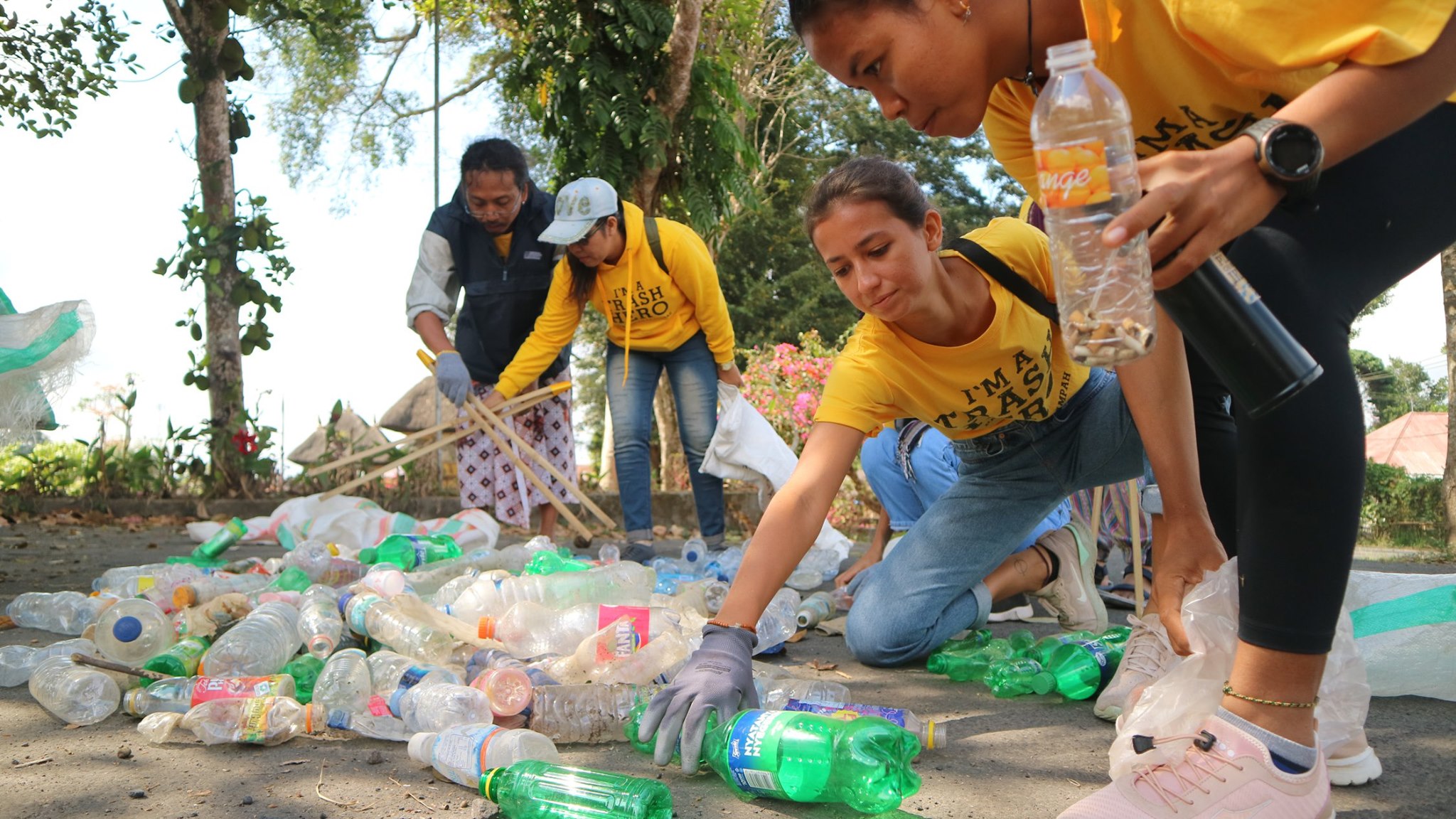
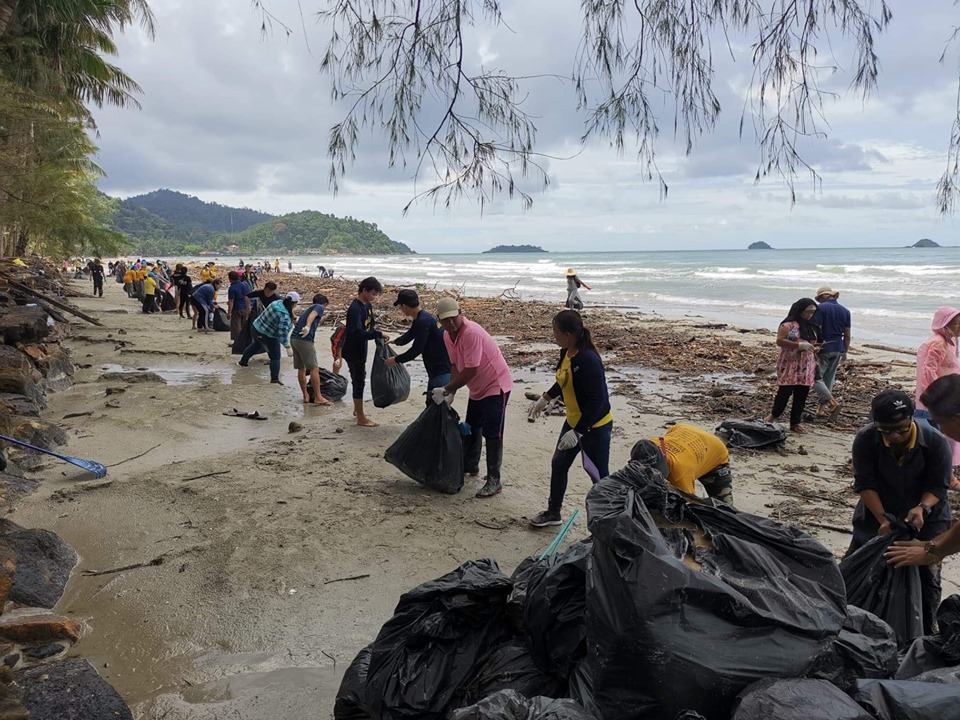
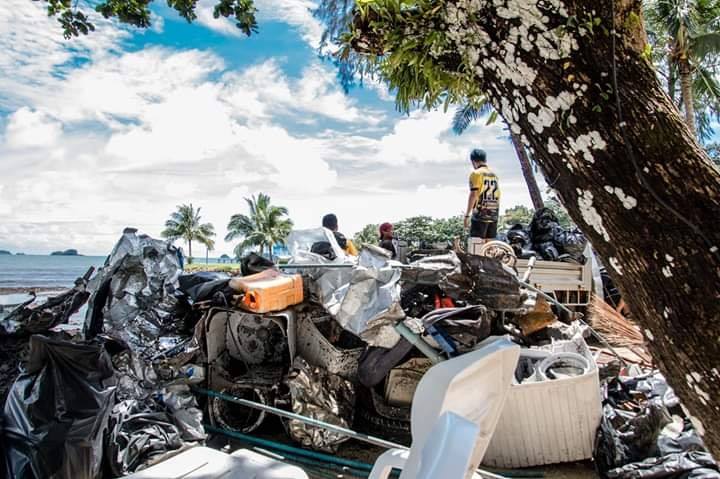 More than 1,000 volunteers assembled over the three-day cleanup, including participants traveling from all across Thailand who had seen reports about the flooding. A number of electricians, kitchen staff, and cleanup volunteers headed to Koh Chang to join the local community, eager to help restore the beautiful island quickly, brought together through a community spirit of collective action!
More than 1,000 volunteers assembled over the three-day cleanup, including participants traveling from all across Thailand who had seen reports about the flooding. A number of electricians, kitchen staff, and cleanup volunteers headed to Koh Chang to join the local community, eager to help restore the beautiful island quickly, brought together through a community spirit of collective action!